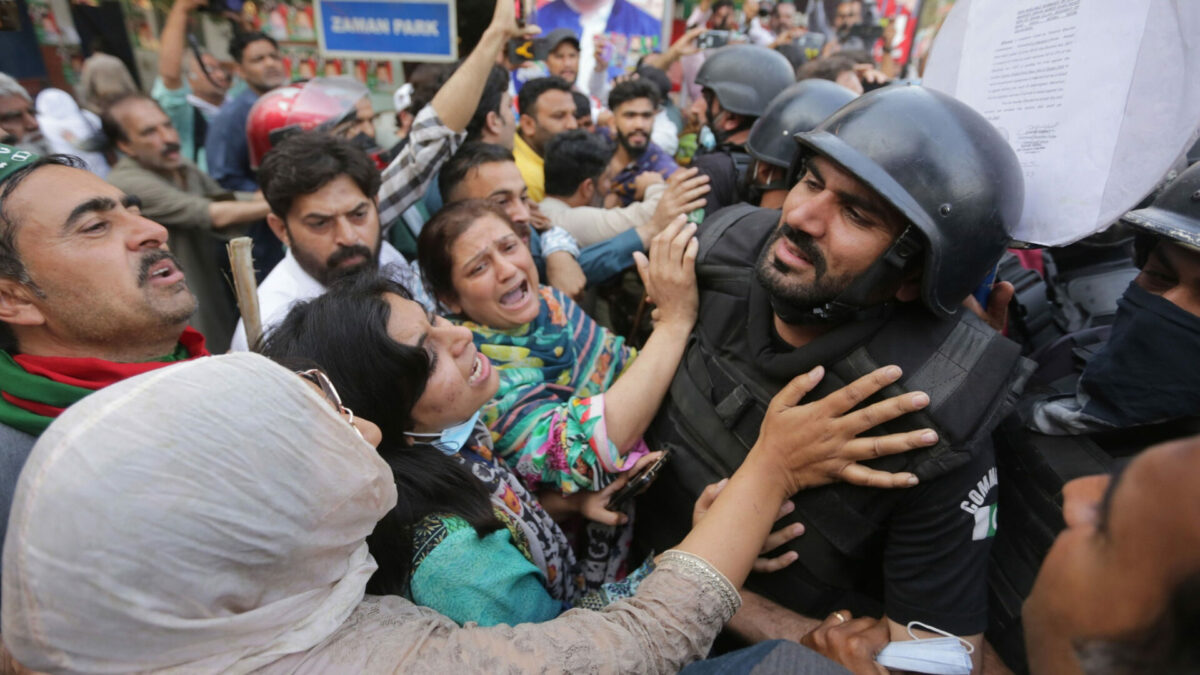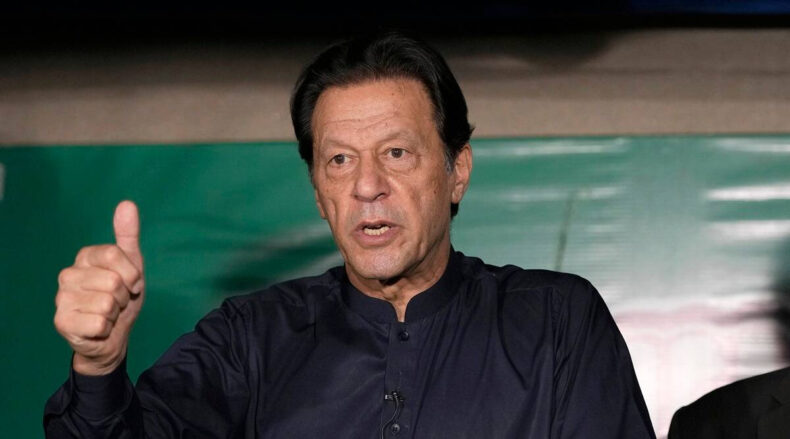On May 19, an anti-terrorism court in Lahore granted Imran Khan pre-arrest bail in three cases that were filed against him following his detention on May 9.
On May 19, an anti-terrorism court in Lahore granted pre-arrest bail to Imran Khan, the former Prime Minister of Pakistan, in three cases that were filed against him after his arrest on May 9. The court approved his bail until June 2 and instructed the 70-year-old leader of the Pakistan Tehreek-e-Insaf (PTI) party to cooperate with the ongoing investigation.
Khan is facing a legal charge related to the assault on Corps Commander House in Lahore.
Khan asserted that he would fight “till the last ball”.On Friday, the leader of the PTI party showed up in court after being granted permission for his vehicle to enter the ATC premises.
The detention of Khan on May 9 at the IHC premises by the paramilitary Pakistan Rangers led to widespread turmoil in Pakistan. It marked a significant event by the protesters, for the first time in the country’s history, they forcefully entered the army headquarters (GHQ) in Rawalpindi and set fire to a residence of a corps commander in Lahore.
According to the police, the number of casualties in the violent confrontations was 10, whereas Khan’s political party asserts that 40 of its supporters were killed due to gunfire from security forces.
Imran Khan’s tumbling power in Pakistan
Imran Khan, who served as the Prime Minister of Pakistan, was removed from his position in April of last year, following a no-confidence vote against his leadership. He claimed that this vote was orchestrated by the United States as part of a conspiracy to target him due to his independent foreign policy decisions regarding Russia, China, and Afghanistan.
Recently, Imran Khan was taken into custody by the anti-corruption watchdog and placed on an eight-day remand starting on May 10. Additionally, a sessions court formally charged him in a separate corruption case. These events triggered violent protests that resulted in the loss of at least seven lives and led to the deployment of the army in the affected areas and three provinces.
Protest by Khan’s supporters

The Pakistan Army cautioned Khan’s followers about engaging in vigilantism. The army stated that it demonstrated “calmness and self-control and displayed a remarkable level of tolerance,” disregarding its reputation, all for the greater benefit of the nation.
The Army issued a concise statement stating that May 9 would be marked as a ‘Black Chapter’ due to the protests that specifically aimed at army property and installations. They described the individuals involved as a political group and expressed that their actions surpassed what the army’s adversaries had been unable to achieve in the past 75 years, driven solely by their desire for power.
It issued a caution that any additional assault on the military, which encompasses law enforcement agencies, as well as military and governmental facilities, would face strong retaliation. At the same time, confrontations between demonstrators and security personnel over the past day have resulted in a minimum of seven fatalities and nearly 300 individuals wounded throughout Pakistan. The army has been dispatched to the capital, Islamabad, as well as the provinces of Punjab, Khyber Pakhtunkhwa, and Balochistan to uphold law and order.
On Wednesday, Prime Minister Sharif issued a cautionary message to individuals who decide to enforce justice by their means, emphasizing the importance of following the law. Failure to do so, he warned, would result in severe consequences being imposed upon them.
Imran Khan’s arrest
On Tuesday, the paramilitary Rangers apprehended the 70-year-old leader of the Pakistan Tehreek-e-Insaf (PTI) party, who serves as the chairman. The National Accountability Bureau (NAB) had issued the orders for his arrest, and the Rangers entered a room in the Islamabad High Court to carry it out. The following day, Khan was presented before Judge Muhammad Bashir in Anti-Accountability Court No. 1.
The military leaders pledged on Monday to ensure that the individuals responsible for setting fire to both civilian and military facilities would face legal consequences. They stated their commitment to conducting trials following the appropriate laws of the nation, such as the Pakistan Army Act and the Official Secrets Act.
At the hearing, the lawyers from the National Accountability Bureau (NAB) asked the court to authorize a 14-day custody of Khan for further investigation into the allegations made against him in the Al-Qadir Trust case. In this case, Khan is accused of embezzling Rs 50 billion from the country’s funds. However, Khan’s attorney objected to the request and urged the judge to set him free, arguing that the charges against him were false and baseless.













